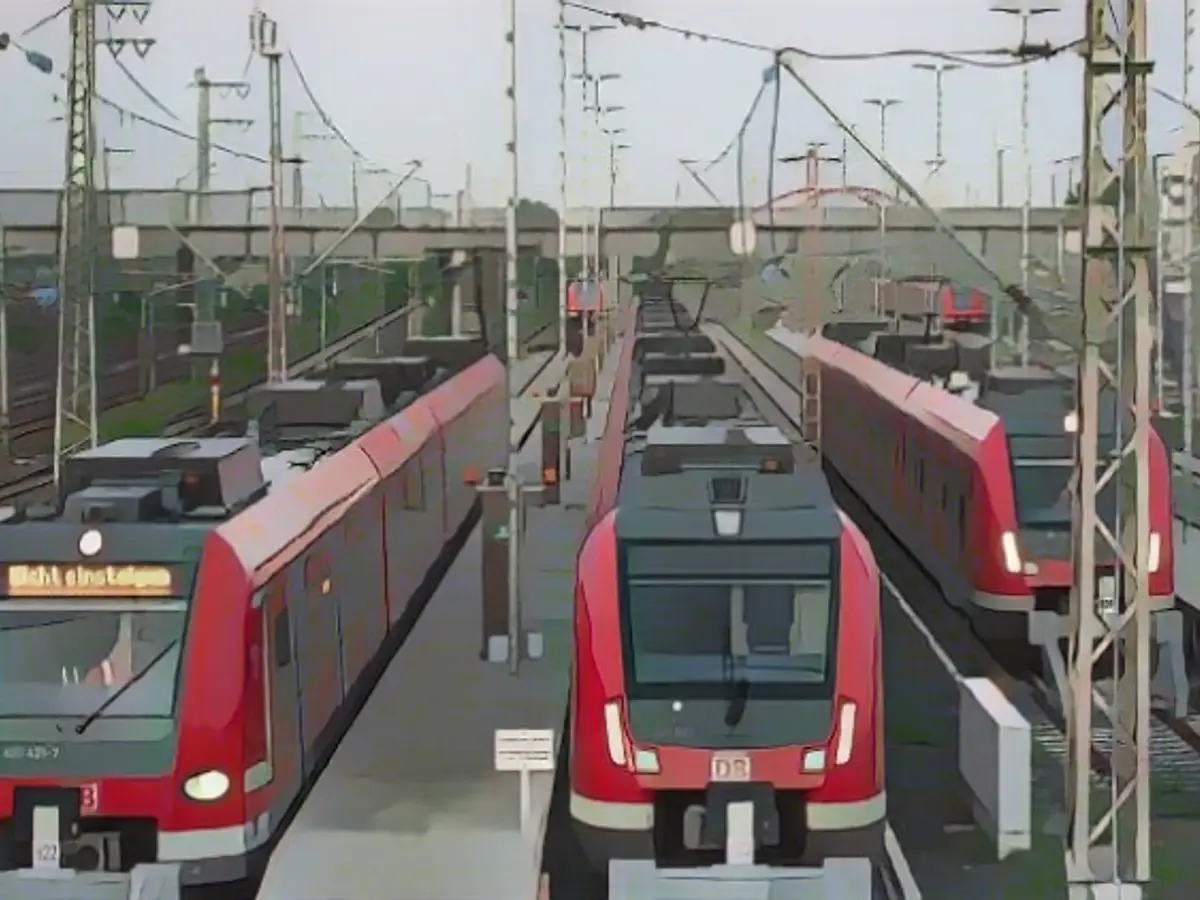GDL boss Weselsky announces new rail strike
The German Train Drivers' Union (Gewerkschaft Deutscher Lokomotivführer) is planning another strike at Deutsche Bahn. The collective bargaining negotiations have failed, announced GDL boss Claus Weselsky. He has not yet specified an exact time period in his announcement.
After the second round of talks with Deutsche Bahn, the German Train Drivers' Union (GDL) has already declared the wage negotiations to have failed. At the same time, it announced new warning strikes at Deutsche Bahn in Berlin. No compromises can currently be found with the employers, said GDL boss Claus Weselsky. He announced that the union would once again strike on rail services. He did not specify exact dates for possible warning strikes.
The ballot among GDL members on indefinite strikes is still ongoing, the result is expected at the end of December. If 75 percent of those taking part in the vote agree to indefinite industrial action, the GDL may also use this means of exerting pressure in the wage dispute. Collective bargaining only began two weeks ago with the first round.
Deutsche Bahn has sharply criticized the decision of the train drivers' union to declare the wage negotiations to have failed after the second round of negotiations. Martin Seiler, Chief Human Resources Officer at Deutsche Bahn, said that the GDL had rejected a three-week Christmas truce, i.e. a period without industrial action at Deutsche Bahn. "We have specifically proposed to the GDL that we hold a Christmas truce between December 15 and January 7," said Seiler. However, the train drivers' union with its leader Claus Weselsky was not prepared to do this.
A week ago, the GDL paralyzed large parts of train traffic nationwide with a 20-hour warning strike. As a result of the industrial action, a good 80 percent of the scheduled long-distance journeys were canceled. The impact on regional transport was even greater in some federal states.
GDL wants fewer working hours
In the collective bargaining negotiations, the focus is currently on the GDL's demand for a reduction in weekly working hours for shift workers from 38 to 35 hours per week with full pay compensation. DB Board Member for Human Resources Martin Seiler believes that the demand cannot be implemented and sees no room for negotiation. He argues that it would be too expensive to implement. In addition, fewer weekly working hours would require more employees - which would be particularly difficult to find in times of a shortage of skilled workers.
GDL boss Weselsky, on the other hand, assumes that a lower working week will make jobs at Deutsche Bahn more attractive. In addition to the reduction in working hours, the GDL is also demanding an increase of 555 euros per month and an inflation compensation bonus for employees. So far, Deutsche Bahn has offered an eleven percent pay increase over a period of 32 months as well as the demanded inflation compensation bonus. The GDL also wants to extend its sphere of influence at Deutsche Bahn and negotiate collective agreements for infrastructure areas. Deutsche Bahn rejects this because the GDL is hardly represented in these areas.
Since the beginning of the still young wage dispute, the GDL has been trying to keep the pressure on Deutsche Bahn as high as possible by threatening to strike and launching a strike ballot. Declaring the negotiations to have failed after two weeks is the next stage of escalation. After the first round of negotiations, Weselsky had presented it as a success that the union and Deutsche Bahn had been able to agree on a tight schedule and numerous further meetings until Christmas. It is now foreseeable that these dates will not be needed for the time being.
Arbitration as a way out?
One way out of the current situation could be arbitration, i.e. negotiations with one or more mediators. Deutsche Bahn had already proposed such a moderated approach before the start of the first round of negotiations, in anticipation of a tough wage dispute with the GDL. Weselsky rejected the proposal in no uncertain terms at the time. On Friday, he said that even now he saw "no room" for mediation.
According to the company, the collective agreements negotiated by the GDL apply to around 10,000 employees at Deutsche Bahn. This makes it the significantly smaller employee representative body at the federally owned group - by comparison, the railroad and transport union EVG negotiated new collective agreements for around 180,000 DB employees in the spring and summer. However, because the GDL primarily represents train drivers and train attendants, it can also disrupt train services in Germany with strikes and warning strikes. Under its current chairman Weselsky, the GDL is known for tough wage disputes.
Read also:
- Why there is still no EU funding for green Saar steel
- 3 billion Saar Fund is unconstitutional
- Politicians at a loss after shock news
- Court of Auditors criticizes the state government's debt plan
Despite the ongoing ballot among GDL members, the union has announced new warning strikes at Deutsche Bahn in Berlin, following the failure of collective bargaining negotiations. This comes after GDL boss Claus Weselsky rejected proposals from Deutsche Bahn for a Christmas truce and argued for a lower working week, which the company finds too expensive and difficult to implement.
Source: www.ntv.de








